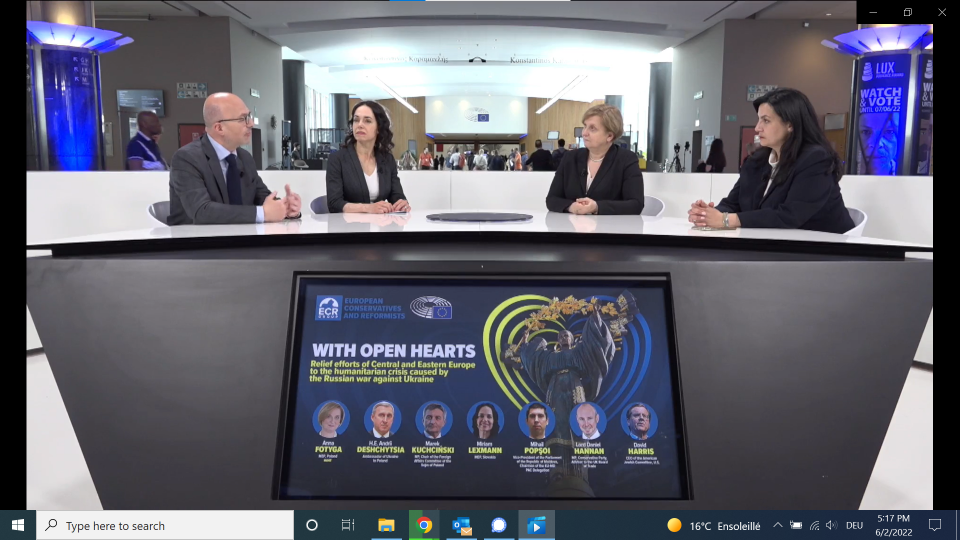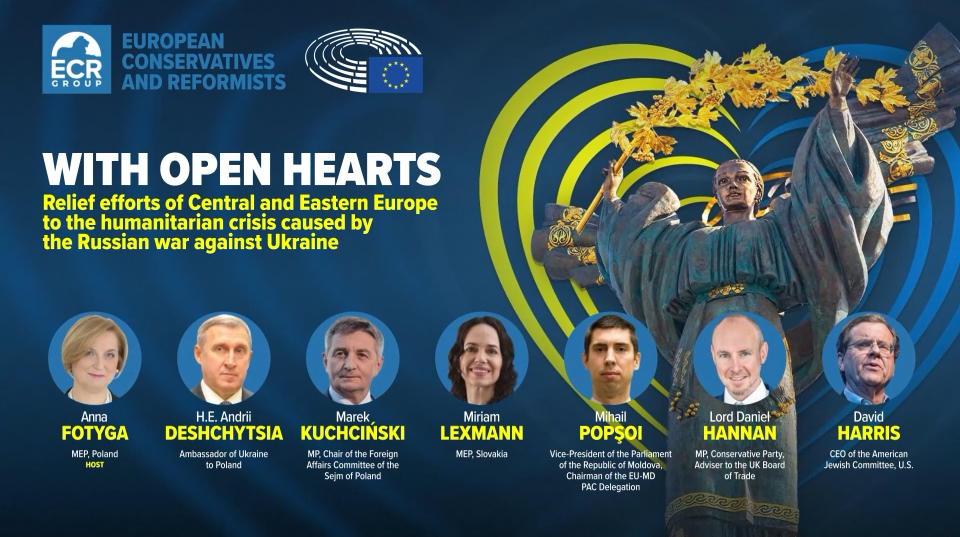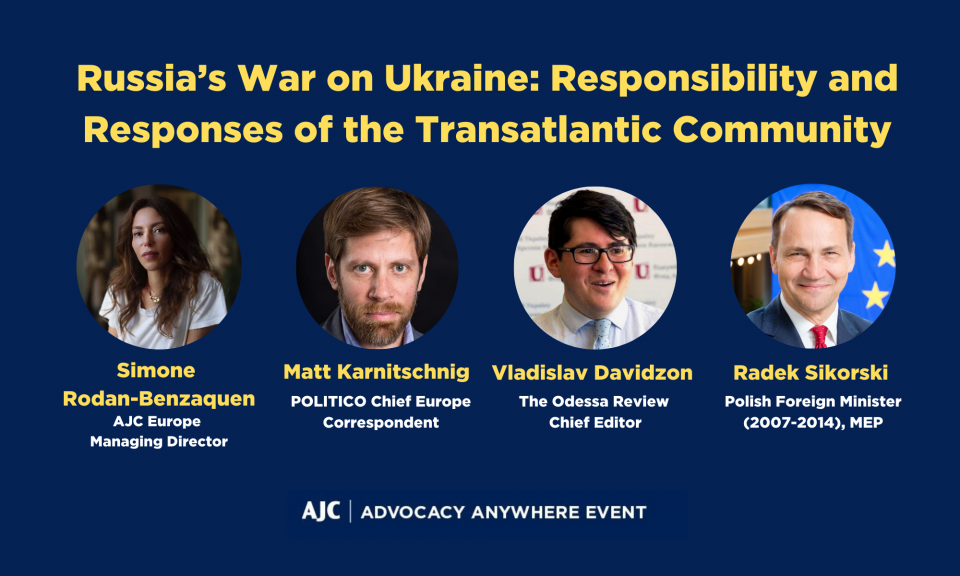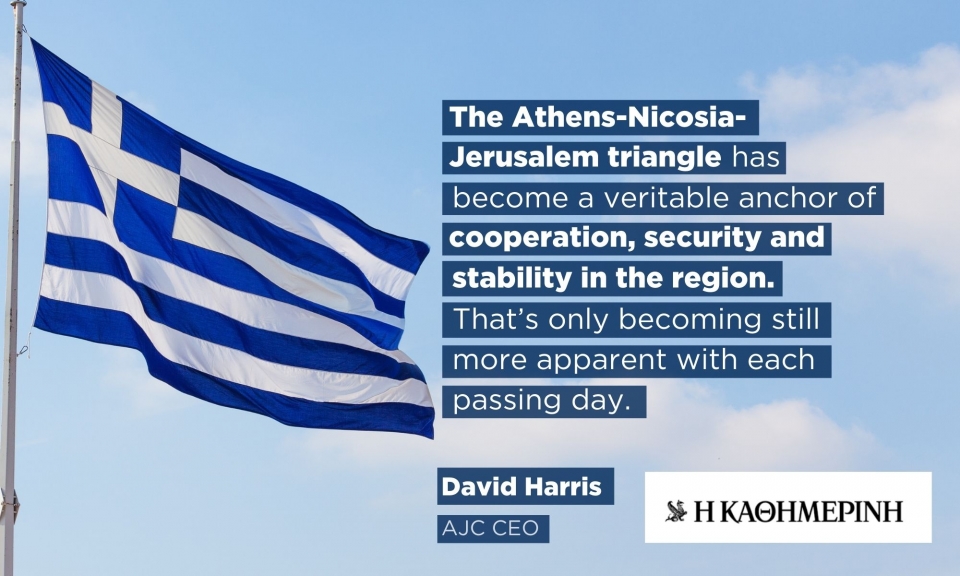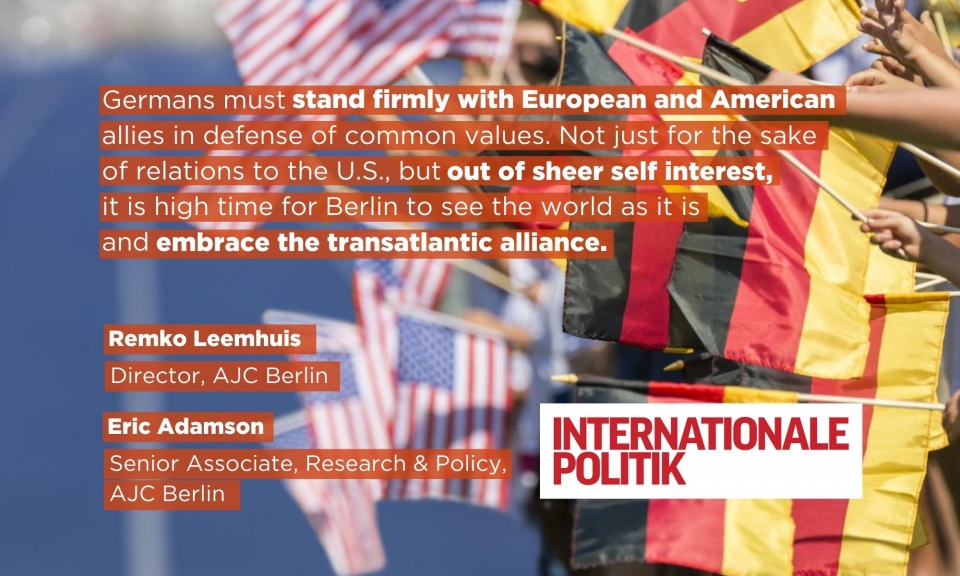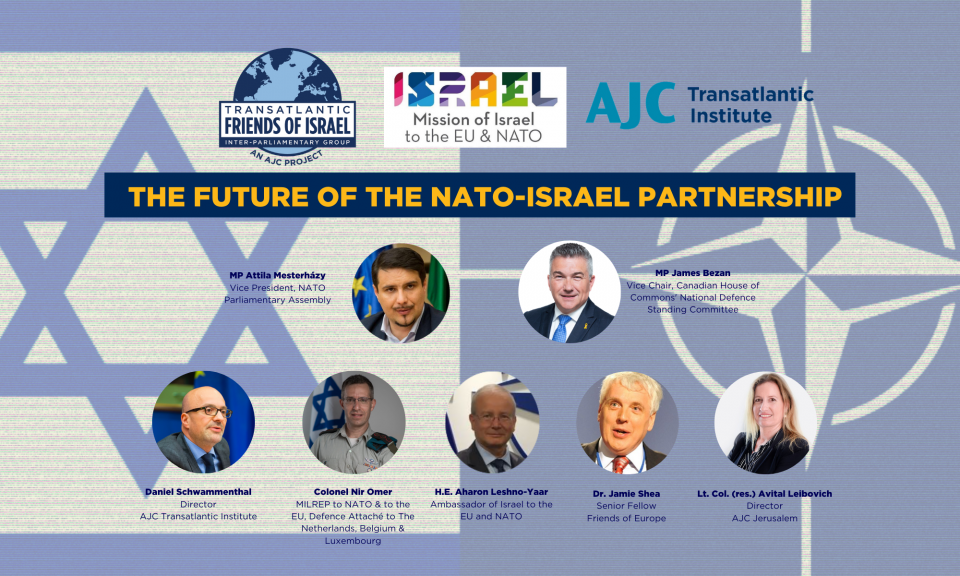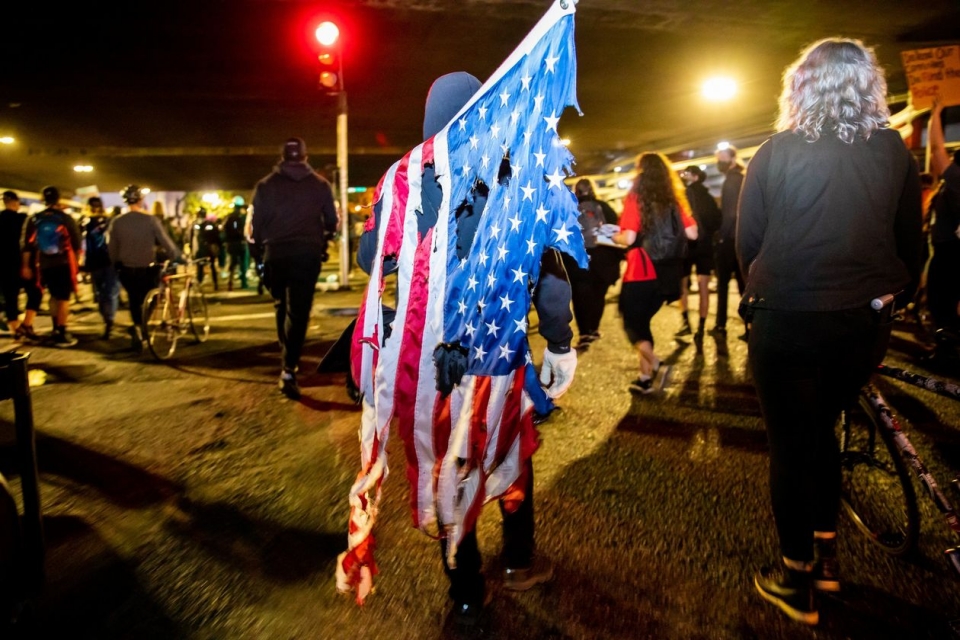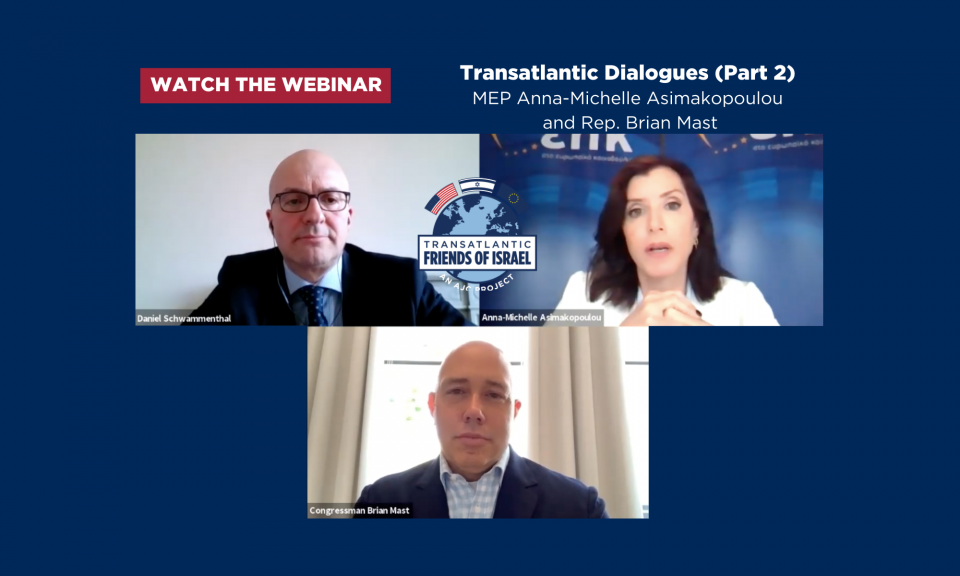Press releases
AJC Statement on the Second Anniversary of Russia’s Invasion of Ukraine
February 23, 2024 — New York, NY
As the world marks the second anniversary of Russia’s unprovoked attack against, and its reported commission of widespread and systematic human rights violations and war crimes in, Ukraine, American Jewish Committee (AJC) and its Jacob Blaustein Institute for the Advancement of Human Rights (JBI) reiterate their longstanding call for world governments to act collectively and individually to ensure a robust international response to and deter further grave violations by Russia in Ukraine and beyond.
“Russia’s aggression and blatant disregard for international norms, human rights, and morality continues to not only pose an existential threat to Ukraine’s survival but to also have far-reaching implications that should concern everyone in the international community,” said AJC CEO Ted Deutch. “As we mark this tragic anniversary, we all must reject calls to abandon the Ukrainian people and instead take further measures to deter Russia and its supporters from continuing its illegitimate and brutal campaign. This is not just a war between Russia and Ukraine but also one in the defense of democracy and against dictatorship, in defense of freedom and against authoritarianism, and for a future global community that safeguards human rights.”
AJC has consistently supported and is now urgently calling for initiatives by the U.S. and European governments to provide sufficient defense support to Ukraine, and supports Ukraine’s accession to NATO, an indispensable bulwark of peace, security, and prosperity. AJC is also calling on governments to redouble efforts to impede those facilitating Russia’s aggression, notably by strengthening sanctions regimes to disrupt Iran’s ability to provide weapons to Russia for use in Ukraine.
AJC and JBI are calling on governments to renew the mandate of the Commission of Inquiry on Ukraine at the upcoming session of the UN Human Rights Council (UNHCR) and enhance the use of targeted sanctions against Russian officials and entities that are implicated in and enabling the commission of these patterns of gross violations, and more effectively implement those sanctions that have already been enacted. They should also enhance funding to support the 6.5 million refugees from Ukraine who have sought refuge abroad since 2022 and the 3.7 million Ukrainians who remain forcibly displaced inside the country, amidst a warning from UNHCR that its Ukraine funding is facing a very significant shortfall.
As Russia’s offensive campaign and illegitimate claim to sovereignty over several areas of Ukraine show no sign of abating, it is critical that States sustain the positive measures they have taken since 2022 and deepen their commitment to securing a just resolution of the conflict in which Ukraine maintains it territorial integrity and in which victims of the many grave violations that have been committed are able to obtain justice and redress, as expeditiously as possible.
“The past two years have illuminated the connections between Russia’s widespread repression at home, its brutal treatment of Ukrainian people, and the threat that Russia’s total disregard for human rights poses to international peace and security,” said Felice Gaer, Director of AJC’s JBI. “Governments should not only continue to facilitate independent, impartial investigations into allegations of violations of international law in Ukraine and systematic repression in Russia, but should take concrete action to follow up on their findings by holding perpetrators accountable, supporting human rights defenders facing repression and retaliation, and taking measures to support the right of victims in Ukraine and in Russia to obtain redress.”
Russia’s military campaign in Ukraine has been marked by an array of violations of human rights and international humanitarian law, the vast majority of which an Independent International Commission of Inquiry on Ukraine created by the United Nations (UN) Human Rights Council in March 2022 has attributed to Russian forces. The UN’s separate human rights mission in Ukraine recently confirmed that Russian forces continue to commit “widespread” torture, including sexual violence, against arbitrarily detained Ukrainians living in territories occupied by Russia, as well as widespread torture of Ukrainian prisoners of war to extract confessions and testimony. Reports of other egregious violations by Russian and Russia-aligned forces, including abduction and forcible transfer to Russia of Ukrainian children – for which the International Criminal Court issued arrest warrants against Russian President Vladimir Putin and Maria Lvova-Belova, Russia’s Commissioner for Children’s Rights, in March 2023 – also continue to be reported. The recent suspicious death of leading Russian opposition figure Alexei Navalny in arbitrary detention in a Siberian prison makes clear that the international community must also redouble its efforts to confront the widespread internal repression in Russia, which is both a catalyst and consequence of its aggression in Ukraine.

